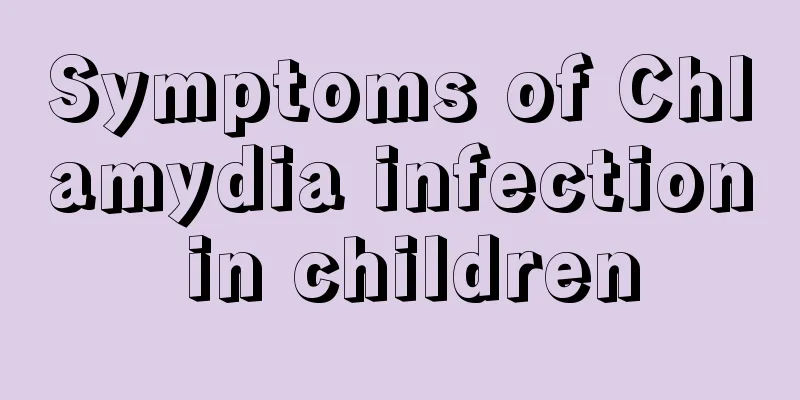Genetic screening for deafness in newborns

|
Newborns are their parents’ treasures, so any problem that arises with them will be magnified. Sometimes some newborns have some deafness problems. After the newborn is born, they will undergo something called neonatal deafness gene screening. Many parents don't know what specific aspects of their baby's deafness screening should be done. Let's take a look at what the newborn deafness gene screening should specifically check. Newborn screening is a test that is performed on newborns within hours or days after birth. Its results can be used to detect and prevent serious illness (including death). Hearing loss is the most common sensory impairment in infancy and childhood. Genetic and environmental factors may be the cause of the disease, of which genetic factors may account for as much as 60%. The most common pathogenic gene for hereditary deafness is GJB2, which may cause congenital deafness or late-onset deafness; another common hereditary deafness in Chinese people can be manifested as enlargement of the vestibular aqueduct, which is often manifested as progressive, fluctuating or delayed hearing loss, and its pathogenicity is often closely related to SLC26A4 gene mutation; the discovery of the deafness-related gene GJB3 has achieved a breakthrough in local gene cloning, and studies have shown that GJB3 is closely related to late-onset high-frequency hearing loss; the MTRNR1 gene is a mitochondrial DNA mutation associated with aminoglycoside drug-induced deafness. In clinical practice, it is difficult to detect and predict drug-induced deafness in advance without the use of genetic screening methods. The deafness gene carrier rate among Chinese newborns is as high as 4.26%, and the pathogenic genotype is not uncommon. As a country with a large population in the world, my country has 30,000 to 40,000 new deaf children every year. The problem of deafness-related muteness is particularly prominent, so genetic testing for deafness in newborns is of great clinical significance. Since 2012, Beijing has started to implement a newborn deafness gene screening project. Through gene screening, patients with hereditary deafness can be identified, effectively ensuring and advancing the diagnosis time of hereditary deafness, and mitigating the occurrence of deafness by avoiding inducing factors; carriers of drug-sensitive deafness genes can be identified, and deafness can be prevented through medication warnings; scientific hearing follow-up plans can be formulated to avoid neglect of hearing loss during speech development; a large number of deafness gene carriers can be identified, and genetic counseling clinics can be used as a base to provide guidance on marriage and childbearing to carriers and family members. The implementation of combined hearing and deafness gene screening for newborns will surely make a positive contribution to reducing the number of deaf people in my country. Universal newborn hearing screening plays an important role in detecting congenital hearing loss, but it cannot identify mild, late-onset, progressive or acquired hearing loss. Combined deafness gene screening can avoid the risk of missing hearing screening alone, emphasizing the importance of hearing follow-up and genetic counseling. It is recommended to combine genetic screening with hearing screening for early detection and early intervention of hearing loss in newborns; genetic guidance is necessary for newborns and family members who screen positive, and genetic counseling should include professional advice on prevention, diagnosis, prognosis, treatment, and fertility. |
Recommend
What to do if your child sneezes
Children are the most concerned people in a famil...
Why does my baby wake up crying in the middle of the night?
When the child is relatively young, every mother ...
Why is it difficult to breathe?
Difficulty in breathing, which is what we usually...
Can children eat watermelon when they have a fever?
It is not a good thing for a child to have a feve...
What should you pay attention to in your baby's diet after weaning?
Babies need to be weaned when they reach a certai...
What causes excessive eye secretions in children? Reveal the reason for you
If you find that your child has a lot of secretio...
What's wrong with a one-month-old baby who hasn't had a bowel movement for a day?
If a baby who is just one month old does not have...
The child's chest pain will go away after a while.
The chest is where our heart is located. If pain ...
What should I do after the infection of ascariasis?
I don't know if you have ever had ascariasis ...
What to do if your child has indigestion and constipation
When the baby is young, due to the lack of probio...
What are the symptoms of chickenpox?
Chickenpox is something that many children get wh...
What to do if your one-year-old baby has conjunctivitis
Conjunctivitis is a common problem in life. It is...
What is the reason for the white spots on the child's fingernails?
There are many reasons for the appearance of whit...
Child's face twitching
There are many reasons for children's facial ...
Symptoms of lung heat cough in children, you will be surprised after reading it
When infants and young children develop lung heat...









